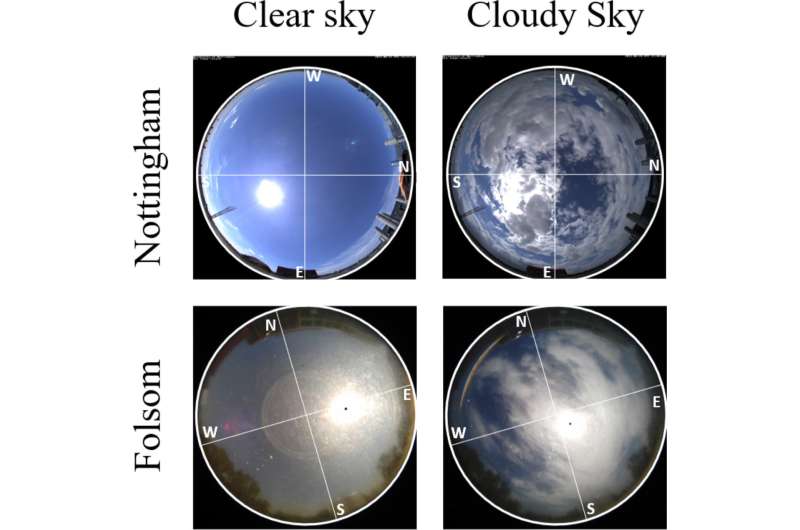
November 21, 2024 by University of Nottingham
Collected at: https://techxplore.com/news/2024-11-solar-power-reliable.html
Researchers at the University of Nottingham have created an AI model that allows them to accurately predict the amount of solar energy that can be created in different climates, making grid integration easier in the UK.
Solar energy now contributes almost six percent of the UK’s energy, with this predicted to double over the next five years. This makes the UK’s climate, particularly the amount of consistent cloud cover, a challenge for the generation of solar power.
Solar forecasting, and the ability to predict how much sunlight a certain area might receive, has therefore become more important, prompting researchers in the Faculty of Engineering to find new ways of making this process more reliable.
As a novel approach, researchers have used very-short-term (VST) solar energy forecasting, using ground-based fisheye images, which has proven effective in predicting rapid and accurate changes in solar irradiance, especially for fast-changing local cloud movements.
To address varied geographical and climatic conditions, the researchers showed that a model initially trained in California’s sunny climate can effectively predict solar output in Nottingham, known for its humid and rainy conditions. The findings are published in the journal Applied Energy.
The approach significantly cut down the amount of local data needed to make accurate forecasts—from four months’ worth to just two weeks.
Liwenbo Zhang, a Postdoctoral Research Fellow from the University of Nottingham, said, “This breakthrough could make it much faster and easier to predict solar energy output in new locations, helping to balance energy grids and integrate solar power more efficiently.
“It means that solar forecasting can be more adaptable to diverse climates, which is crucial as we aim to rely more on renewable energy sources globally,” said Zhang.
In using data from other locations, the researchers hope that a model trained in a region with stable sunlight can be adapted for an area with more unpredictable sunlight, like Nottingham, and be beneficial for future energy targets.
More information: Liwenbo Zhang et al, Transfer learning in very-short-term solar forecasting: Bridging single site data to diverse geographical applications, Applied Energy (2024). DOI: 10.1016/j.apenergy.2024.124353

Leave a Reply